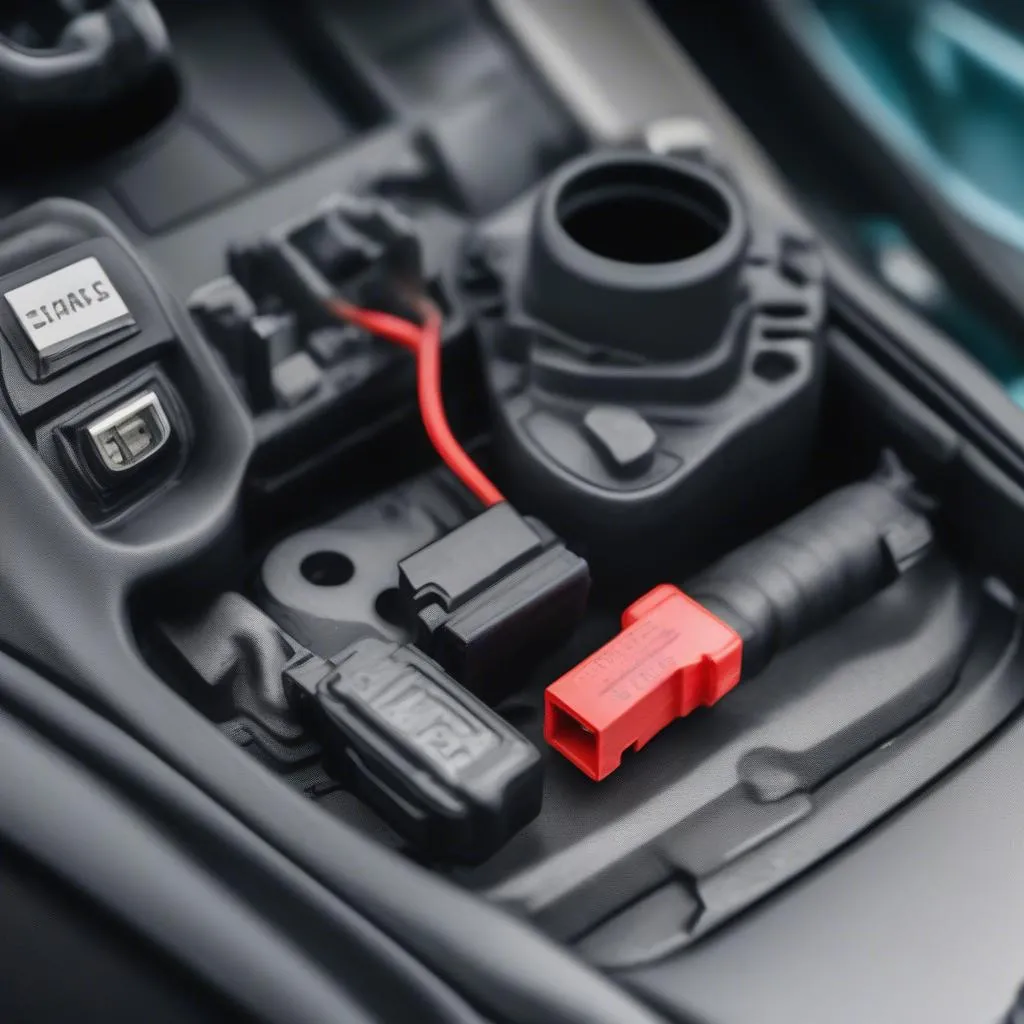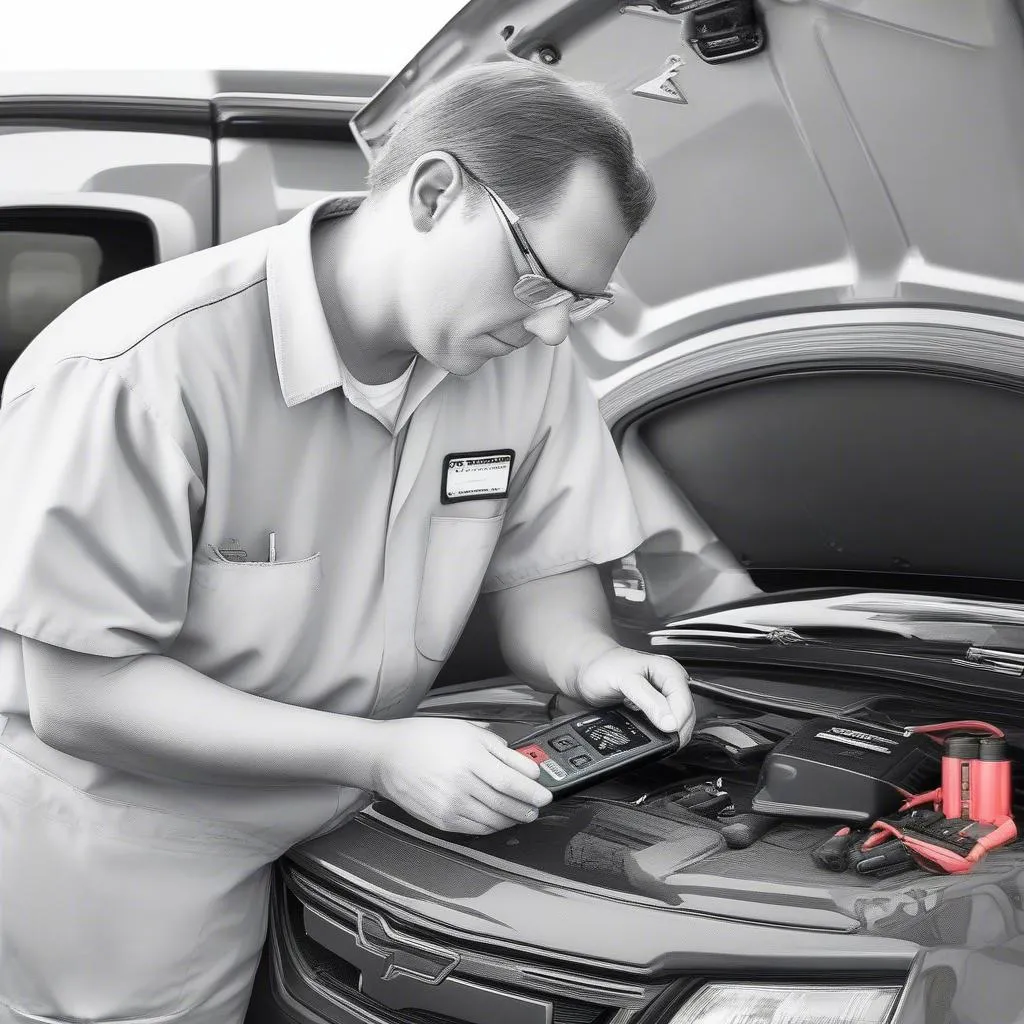Have you ever encountered a frustrating situation where your 2000 Chevy 1500 wouldn’t start, and the only clue you had was a blinking check engine light? This could be a symptom of a faulty OBD connector ground, a common issue among car enthusiasts and mechanics alike.
Understanding the Significance of OBD Connector Grounds
The OBD (On-Board Diagnostics) connector is the gateway to your vehicle’s computer system, allowing technicians to diagnose and troubleshoot problems. Grounds play a crucial role in this process. They act as a pathway for electrical current to flow back to the battery, ensuring proper communication between your car’s computer and the diagnostic tools.
From a Mechanic’s Perspective:
A good OBD connector ground is essential for accurate fault code reading and data retrieval. When the ground is compromised, you might receive inaccurate or incomplete diagnostic information, leading to unnecessary repairs or a prolonged troubleshooting process.
From a Technical Perspective:
The OBD connector ground provides a reference point for the electrical signals within the system. A faulty ground can cause voltage fluctuations, interference, and incorrect readings, affecting the overall performance and reliability of the vehicle’s electronic systems.
Identifying and Resolving OBD Connector Ground Issues
Symptoms of a Faulty OBD Connector Ground:
- Intermittent or no communication with the OBD connector.
- Erratic engine performance.
- Blinking check engine light.
- Faulty sensor readings.
- Difficulty starting the vehicle.
Troubleshooting Tips:
- Visually inspect the OBD connector and wiring harness: Look for any signs of corrosion, damage, or loose connections.
- Check the ground wire: The ground wire is usually a black wire attached to the connector. Ensure it’s securely connected and free from corrosion.
- Test the ground connection: Use a multimeter to check for continuity between the ground wire and the chassis. If there’s no continuity, the ground connection is faulty.
Repairing a Faulty Ground:
- Clean the connector: Use a contact cleaner to remove any corrosion or dirt from the OBD connector pins.
- Tighten connections: Ensure all connections are securely tightened.
- Replace damaged wiring: If the ground wire is damaged, replace it with a new one.
- Check the ground point: If the ground point itself is corroded or damaged, repair or replace it.
 Chevy 1500 OBD Connector Ground
Chevy 1500 OBD Connector Ground
Common OBD Connector Ground Issues with Chevy 1500s:
- Corrosion: Salt and moisture can cause corrosion on the connector pins, interfering with electrical conductivity.
- Loose Connections: Over time, vibration and movement can cause loose connections, especially if the connector is frequently used.
- Damaged Wiring: Physical damage to the ground wire, caused by wear and tear, can interrupt the electrical path.
Additional Tips and Insights
Expert Tip: Dr. Richard Smith, a renowned automotive electrical specialist, recommends using a Dealer Scanner specifically designed for European cars to diagnose OBD connector ground issues. These scanners provide a more comprehensive assessment of the system and often pinpoint the exact source of the problem.
Real-life Story:
John, an avid Chevy 1500 owner, experienced persistent communication errors with his OBD connector. After struggling for weeks, he finally discovered a corroded ground wire hidden beneath the dash. After cleaning and tightening the connection, the issue was resolved.
Frequently Asked Questions:
- Q: Where is the OBD connector located on a 2000 Chevy 1500?
- A: The OBD connector is typically located under the dash, near the driver’s side knee.
- Q: Can I use a generic OBD scanner to diagnose a ground issue?
- A: While generic scanners can be helpful, a Dealer Scanner specifically designed for your vehicle’s make and model will often provide more detailed information and insights.
- Q: What are some common sources of ground issues?
- A: Common sources include corrosion, loose connections, damaged wiring, and faulty ground points.
- Q: Can I fix the OBD connector ground myself?
- A: While it’s possible to fix the ground issue yourself, it’s always best to consult a qualified mechanic if you’re not comfortable with electrical work.
Exploring Related Information
If you’re interested in learning more about OBD connector issues, you can find additional resources on our website, such as:
- OBD Connector Grounding: A Comprehensive Guide
- Dealer Scanners for European Cars: What You Need to Know
- Troubleshooting OBD Communication Errors
 Chevy 1500 Dealer Scanner
Chevy 1500 Dealer Scanner
Need Help?
If you’re experiencing OBD connector ground problems with your 2000 Chevy 1500 and need expert assistance, don’t hesitate to reach out. We offer 24/7 support for diagnostics and repairs. Simply contact us via WhatsApp at +84767531508. We’re here to help you get back on the road!
Let us know in the comments below if you have any other questions or share your experience with OBD connector ground issues!
